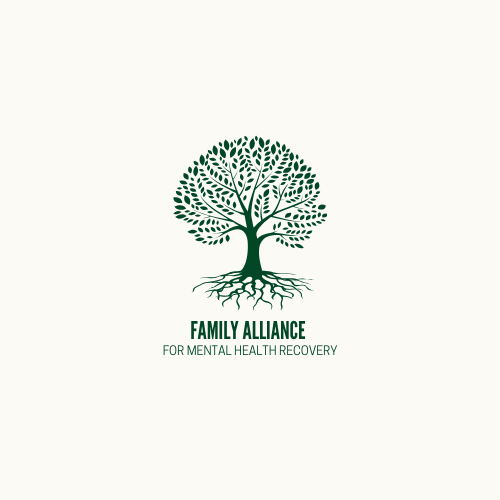
Stories of Recovery
Common Threads of Recovery:
The best way to support your loved one is to respect and honor their individual choices. Remember that everyone is the best expert on themselves.
-

Power of Human Connection
People who recovered give much credit to family, friends, peer supporters, mental health providers, or in some cases even to sympathetic strangers who showed kindness and understanding to them. Remember that you cannot support a loved one without having their trust and connecting with them emotionally.
-

Sense of Purpose in Life
It may be work, religion, spirituality, parenting, creative pursuits, political and social activism – whatever the person is passionate about that gives meaning to their life. Everything that stands in the way of pursuing one’s goal in life stands in the way of recovery.
-

Reject other's projections of doom and gloom
Stay away from anyone telling you that following one’s dreams is “denial” or “grandiosity.” Many people diagnosed with serious mental illness receive advanced degrees, have successful careers in demanding fields, travel the world, and raise families after doctors and other figures of authority told them that this would be impossible and advised them to be “realistic” and to give up their dreams. If somebody tells you that all the poor wretched mentally ill person can hope for is “to manage their symptoms,” live on welfare, or at best to have a low-paying unskilled job – don’t believe them. They either have an agenda, or don’t know what they are talking about.
Recovery Looks Different for Everyone
Most people who experience psychosis can recover completely and move on with their lives. There are also many people with scary-sounding psychiatric diagnoses like schizophrenia or bipolar who either recover completely or learn to manage their problems and live fulfilling lives, having successful careers, families, and meaningful relationships.
Studies indicate various rates of recovery, but the true numbers may be impossible to know, because many people are secretive about their psychiatric history. Some “normal” person you know – your colleague, classmate, neighbor, or fellow church-goer – may have been diagnosed as “schizophrenic,” or had been hospitalized for hallucinations, or may be hearing voices in their head right now, and you will never know, because, frankly, how would you react if they tell you?
Only a few share publicly their stories of living meaningful and successful lives after being diagnosed with serious mental illness. Not all of them think that “recovery” is the right word to describe their success. On this website, we use “recovery” in a broad sense of not being hindered by a psychiatric diagnosis and living the life one wants.
When you read and watch these inspiring stories, note that everyone’s path to recovery is different: some use medications, and some don’t; some embrace their diagnoses, and some reject them. Among those who use medications, some take them regularly, others only on occasion.
Recovery Stories
Eleanor Longden, PhD, psychologist, scientist, and manager at the Psychosis Research Unit
Was diagnosed with schizophrenia, rejected her diagnosis as a meaningless label, recovered, and has been off medication since 2007. She is currently a research scientist, manager at the Psychosis Research Unit, and a UK Deputy Prime Minister’s Mental Health Hero Award recipient.
As a college student, she shared her experience of hearing a voice in her head with her classmates and was persuaded to see a doctor, who started her on a treatment. After the treatment began, voices multiplied and became disturbing. Things became so bad that she once tried to drill a hole in her head. She was in and out of hospitals until Dr. Pat Bracken helped her recover. In 2009, her voices were still “menacing”; by 2016, they had “transformed in character” and became “guides and allies, not tormentors.” After spending years in the coercive system “which emphasized factors like compliance, sedation and silencing,” she now advocates for recovery-oriented approaches. She describes her position as, “I’m not anti-medication; I’m pro-choice.”
Web page: https://www.ted.com/speakers/eleanor_longden
YouTube video: https://www.youtube.com/watch?v=syjEN3peCJw
Books: Relating to Voices using Compassion Focused Therapy: A Self-help Companion (Routledge, 2022) https://www.amazon.com/Relating-Voices-Compassion-Focused-Therapy/dp/0367762846
Learning from the Voices in My Head (TED Books Book 39) https://www.librarything.com/work/14511456
Peer-reviewed research publications: https://www.researchgate.net/profile/Eleanor-Longden
Elyn R. Saks, J.D, professor and associate dean at the University of Southern California, McArthur Foundation “genius” grant recipient
Diagnosed with schizophrenia, continues to have “some symptoms,” has accepted her diagnosis, uses medication and has not been hospitalized since 1983. Doctors told her that she would never live independently, have a career, or get married. After her last hospitalization, her psychiatrist recommended her to try and see if she could be a part-time cashier. Instead, she returned to law school and received her J.D. from Yale. She is a distinguished professor at the University of Southern California and has received the McArthur Foundation “genius” grant. She finds a combination of medication and psychoanalysis helpful; her professional work and support of family and friends have been essential for her success. Saks describes herself as “very pro-psychiatry and very anti-force”: she thinks that psychiatric treatment is helpful, but it is wrong to use force with patients, because “not being allowed to make decisions for oneself is very degrading, painful, and disempowering.”
Online Support Groups
-
Wildflower Alliance
The Wildflower Alliance supports healing and empowerment for our broader communities and people who have been impacted by psychiatric diagnosis, trauma, extreme states, homelessness, problems with substances and other life-interrupting challenges.
A collaboration of giving and receiving mindful peer support, self-awareness, and radical wellness.
Mad in America’s mission is to serve as a catalyst for rethinking psychiatric care in the United States (and abroad). We believe that the current drug-based paradigm of care has failed our society, and that scientific research, as well as the lived experience of those who have been diagnosed with a psychiatric disorder, calls for profound change.
-
Hearing Voices Network
Support groups for people hearing voices in their head, seeing visions, or experiencing other unusual/extreme states conventionally described as “psychosis” or “serious mental illness.”
Fireweed Collective offers mental health education and mutual aid through a Healing Justice lens. We help support the emotional wellness of all people, and center the needs of those most marginalized by our society. Our work seeks to disrupt the harm of systems of abuse and oppression, often reproduced by the mental health system.
-
Virtual Peer Groups
This virtual group allows individuals to talk about getting off their psychiatric medications safely and with support from their peers. This group is peer-run and free to all without any referral or payment needed.
As a peer support group, this group is not open to students, clinicians, or press to observe or for any purpose other than to engage in peer support for personal growth and benefit.
Members from all over the world come together to share their experiences and insights, support one another, participate in member-led discussions and calls, and access resources related to leaving the mental health industry and its medicalized paradigm behind.


